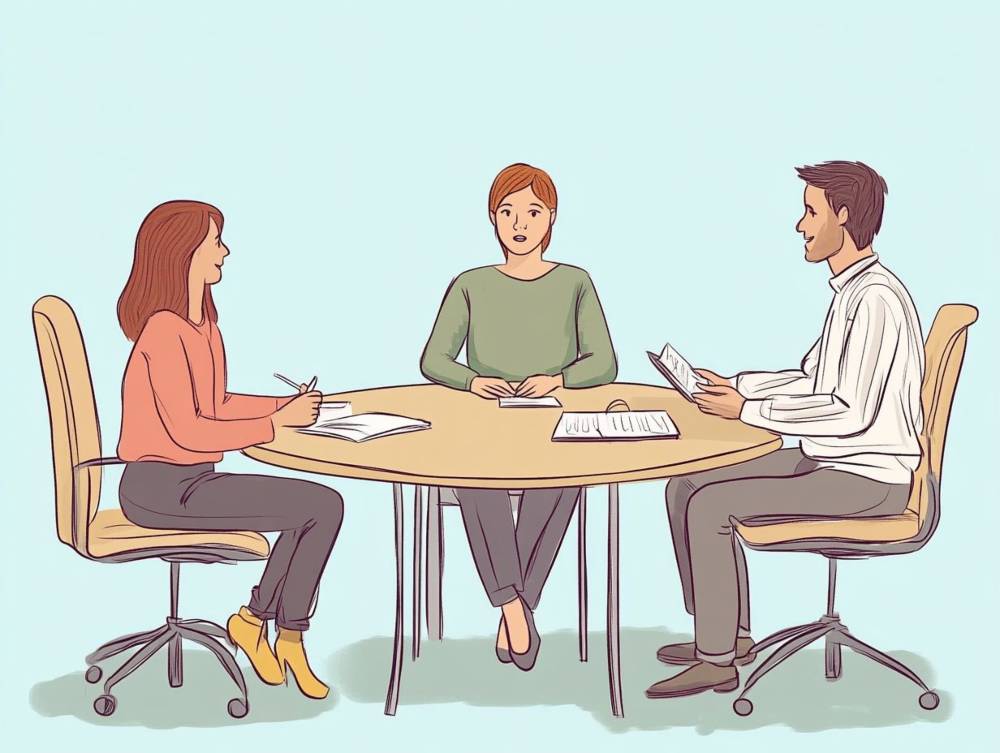
The Role of Mediators in Out-of-Court Settlements
Mediation has emerged as a vital tool for resolving disputes outside of traditional court settings, providing an alternative that emphasizes communication, collaboration, and compromise. This article examines the essential role that mediators play in facilitating out-of-court settlements, ensuring fairness, and guiding parties through a structured negotiation process. Additionally, we will highlight the numerous benefits of mediation for all parties involved, present a step-by-step overview of the mediation process, and offer guidance on selecting the appropriate mediator for specific needs. Whether one is confronting a personal or business dispute, understanding the principles and practices of mediation can enable individuals to make informed decisions and achieve satisfactory resolutions.
Defining Mediation and its Purpose
Mediation is a structured process that provides a framework for disputing parties to resolve their conflicts amicably, often without the need for court litigation. This informal dispute resolution process depends on the expertise of a third-party facilitator who guides the parties within a voluntary and confidential environment.
This setting enables the parties to explore their interests and needs while promoting effective communication styles and emotional intelligence. The primary objective of mediation is to achieve mutually acceptable solutions through facilitative dialogue and collaborative problem-solving, thereby fostering consensus building and enhancing relationships between the parties.
This form of conflict resolution emphasizes collaboration over confrontation, acknowledging that successful outcomes frequently arise from understanding rather than merely winning a dispute.
Key components of mediation include active listening, empathy, and the ability to reframe issues, all of which are essential in addressing the underlying emotions that can exacerbate conflicts and power imbalances.
By prioritizing emotional intelligence and procedural fairness, mediators create a secure environment for the parties to articulate their concerns and work toward sustainable agreements. Ultimately, mediation not only serves to resolve specific disputes but also equips individuals with valuable negotiation skills, thereby enhancing their future interactions and fostering a culture of cooperation.
The Role of Mediators in Out-of-Court Settlements
Mediators play an essential role in facilitating out-of-court settlements, acting as neutral third-party professionals who guide disputing parties through the mediation process.
They utilize a variety of mediation techniques, including facilitative and evaluative mediation, to assist parties in identifying their interests and needs, overcoming negotiation barriers, and fostering an environment of trust and collaboration.
It is imperative for mediators to maintain impartiality and confidentiality throughout the process, while also ensuring that all parties feel enableed to participate meaningfully in discussions and work towards a settlement agreement.
Facilitating Communication and Negotiation
Effective communication and negotiation represent fundamental components of the mediation process, wherein mediators utilize their communication skills and negotiation tactics to guide disputing parties toward resolution.
Through the practice of active listening and facilitative dialogue, mediators assist parties in articulating their perspectives, identifying underlying issues, and addressing communication barriers. The implementation of questioning strategies enables mediators to promote deeper understanding and exploration of interests, fostering a productive negotiation environment.
Plus these foundational skills, mediators often incorporate techniques such as reflective responding and summarizing, which serve to reinforce the messages being conveyed and clarify any misunderstandings. By reflecting what each party has expressed, they validate emotions and cultivate a sense of safety that encourages openness.
The strategic application of open-ended questions prompts participants to critically evaluate their positions, thereby fostering an environment conducive to the organic emergence of solutions.
These skills transcend mere techniques; they have a significant impact on mediation outcomes by promoting collaboration and minimizing adversarial tensions. This ultimately leads to sustainable resolutions that satisfactorily address the interests of all parties involved.
Ensuring Fairness and Balance
Ensuring fairness and balance in the mediation process is essential for fostering trust among disputing parties and achieving successful resolutions. Mediators must adhere to ethical standards and maintain impartiality throughout the mediation sessions, ensuring that all voices are heard and valued.
This commitment to neutrality facilitates a deeper exploration of each party’s concerns, which is critical for understanding the underlying issues at play. By promoting a culture of fairness, mediators can encourage participants to engage more openly, sharing their thoughts and feelings without fear of bias or judgment.
In this context, the role of the mediator as an independent facilitator becomes crucial; it is through their unbiased guidance that effective communication is nurtured. Ultimately, when parties recognize the mediator’s dedication to ethical principles, they are more likely to trust the process, fostering a willingness to collaborate toward mutually beneficial outcomes.
The Mediation Process in Out-of-Court Settlements

The mediation process in out-of-court settlements is a structured method aimed at facilitating conflict resolution between disputing parties in a timely and cost-effective manner.
This process generally includes several essential steps, such as initial case assessment, agenda setting, mediation sessions, and follow-up, all of which necessitate meticulous case management and adherence to established timelines.
By employing various mediation techniques, mediators assist the parties in articulating their interests and foster collaborative efforts toward achieving a mutually beneficial settlement agreement.
Step-by-Step Guide to Mediation
A comprehensive guide to mediation delineates the essential stages involved in the mediation process, ranging from pre-litigation preparations to case resolution and closure. Each step is vital for ensuring that the mediation is conducted efficiently and effectively, enabling the parties to identify their interests and collaboratively explore potential solutions.
By adhering to a systematic approach that includes thorough case analysis and process design, mediators significantly enhance the probability of achieving a successful outcome.
In the initial phase, engaging in pre-litigation planning is paramount. The parties must gather all relevant information and establish clear objectives for the mediation process. This preparation entails assessing the strengths and weaknesses of each party’s position, which contributes to a more focused discussion during the mediation sessions.
Effective case analysis requires a comprehensive examination of not only the legal aspects but also the emotional and relational dynamics at play. As the mediation progresses, it is essential to maintain open lines of communication and foster an environment conducive to creative problem-solving.
A well-structured closure phase is critical for reinforcing the agreements reached, ensuring that all parties feel their concerns have been adequately addressed and that any commitments made are clear and actionable.
Benefits of Using Mediators in Settlements
The utilization of mediators in settlement processes offers numerous benefits for all parties involved, positioning mediation as a compelling alternative to traditional litigation.
Mediators provide cost-effective solutions by facilitating communication and negotiation within a voluntary framework, allowing parties to maintain control over the outcome while enableing them to reach mutually agreeable resolutions.
This collaborative approach not only fosters positive relationships but also increases the likelihood of achieving successful resolution outcomes.
Advantages for All Parties Involved
The advantages of mediation extend to all parties involved, enhancing outcomes and fostering relationship-building among disputing parties. By prioritizing stakeholder engagement and addressing emotional dynamics throughout the process, mediators establish a safe environment that encourages collaboration and open dialogue.
This approach leads to more satisfactory and lasting agreements. Furthermore, this holistic method of conflict resolution not only reduces animosity but also lays the groundwork for future interactions.
Mediation enables participants by affording them a voice in the resolution process, thereby increasing their investment in the outcome. Each party is given the opportunity to articulate their concerns and needs, fostering a sense of ownership over the agreement reached.
This collaborative environment promotes understanding and empathy, as parties often gain insight into one another’s perspectives. The mediator’s role in facilitating respectful discussions can transform negative emotions into constructive dialogue, allowing relationships to heal.
Ultimately, the cooperative nature of mediation not only resolves disputes but also strengthens bonds, paving the way for future partnerships and collaborative endeavors.
Choosing the Right Mediator

Selecting the appropriate mediator is a crucial element of the mediation process, as the mediator’s qualifications, experience, cultural competence, and professional demeanor significantly influence the effectiveness of conflict resolution.
Potential mediators should possess a comprehensive understanding of the mediation process, exhibit strong facilitation skills, and demonstrate cultural sensitivity to effectively engage with diverse parties involved in the dispute context.
A well-selected mediator cultivates an environment of trust and neutrality, which is essential for successfully guiding the parties toward a favorable outcome using mediation effectiveness strategies.
Mediator Qualifications and Considerations
When evaluating the qualifications of mediators, it is essential to consider their training, adherence to ethical standards, and professional experience within the field of dispute resolution. A qualified mediator should demonstrate a comprehensive understanding of various mediation techniques, a firm commitment to ethical practices, and strong dispute resolution skills, all of which are crucial for effectively facilitating negotiations and navigating complexities during mediation sessions.
Prior experience in relevant types of disputes can further enhance a mediator’s effectiveness in addressing the specific needs of the parties involved, considering mediator attributes such as mediation practice and process management.
It is advisable for potential mediators to have completed accredited training programs that encompass the fundamental principles and practices of mediation. This educational foundation is vital for developing the capacity to manage diverse cases and implement effective negotiation strategies.
Ethical considerations are of utmost importance; a mediator must strictly adhere to established codes of conduct to maintain mediator impartiality and foster trust among the disputing parties.
Moreover, a mediator’s professional journey, including years of practice and a proven track record in conflict resolution, can significantly influence their ability to promote constructive dialogue and facilitate cooperative problem-solving, ultimately leading to successful outcomes and demonstrating mediation benefits.
Frequently Asked Questions on Mediator Role and Responsibilities
What is the mediator role in out-of-court settlements?
Mediators play a crucial role in out-of-court settlements by facilitating communication and negotiation between parties in a dispute, ensuring party autonomy and understanding negotiation dynamics.
What are the main goals of mediators in the settlement process?

The main goals of mediators are to help parties reach a mutually acceptable agreement, promote trust-building, and avoid the time and expense of going to court.
Do mediators have any decision-making power in the settlement process?
No, mediators do not have decision-making power. They act as neutral third-party intervention agents and do not impose solutions on the parties.
What specific tasks do mediators perform in out-of-court settlements?
Mediators help parties identify and clarify issues, explore potential solutions, and facilitate communication and understanding between parties, using mediation techniques and collaborative discussions.
How do mediators ensure confidentiality in the settlement process?
Mediators are bound by confidentiality agreements and keep all information shared during the mediation process confidential, unless required by law, ensuring all legal rights are maintained.
What qualifications and training do mediators have?
Mediators typically have a background in law, social work, or psychology and have completed specialized training in mediation techniques, conflict resolution skills, and mediation models such as facilitative mediation and transformative mediation.



